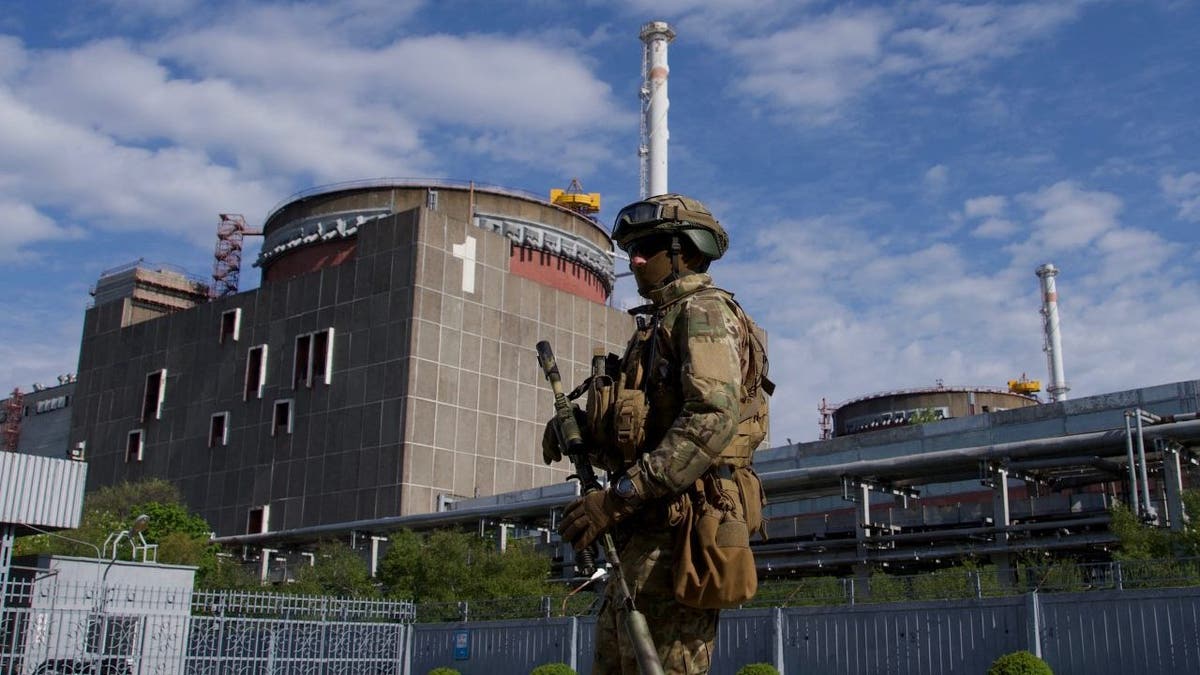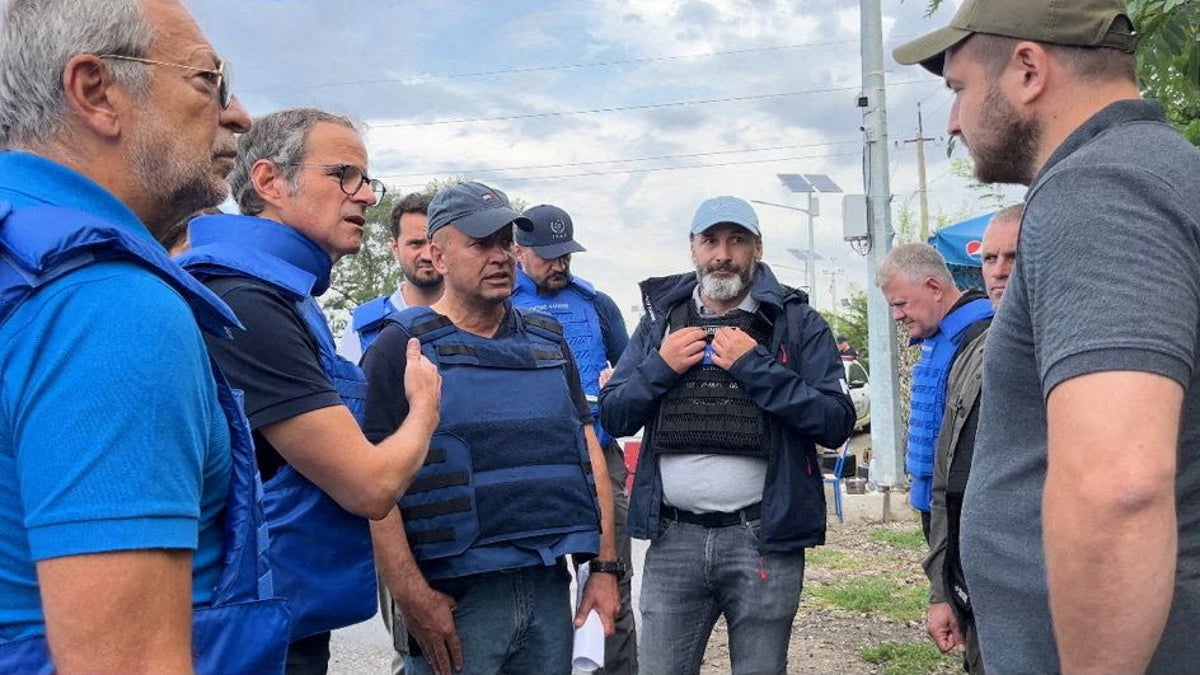UN inspectors arrive at Russian-occupied nuclear plant in Ukraine
Fox News' Alex Hogan reports from Kyiv after a strike from a mortar shell forced the shutdown of one of the main reactors at the facility.
Ukraine's Zaporizhzhia nuclear power plant lost its last line of external power on Saturday, with just one of its six reactors remaining in operation.
The Russian military has held the power plant since the early days of Russian President Vladimir Putin's February invasion. The cutoff of the plant's final main power line leaves only a reserve line to supply electricity to Ukraine's grid.
The Zaporizhzhia power plant is the largest nuclear plant in Europe, and experts have warned that Russia's invasion could cause a Chernobyl-style disaster at the plant.
The U.N.'s International Atomic Energy Agency deployed a team to the plant to inspect it. The team's arrival was delayed due to Russian shelling along the road they planned to take.

TOPSHOT - A Russian serviceman patrols the territory of the Zaporizhzhia Nuclear Power Station in Energodar on May 1, 2022. - The Zaporizhzhia Nuclear Power Station in southeastern Ukraine is the largest nuclear power plant in Europe and among the 10 largest in the world. (ANDREY BORODULIN/AFP via Getty Images) ((Photo by Andrey BORODULIN / AFP) (Photo by ANDREY BORODULIN/AFP via Getty Images))

IAEA Director General Rafael Mariano Grossi and fellow officials try to negotiate access to Zaporizhzhia nuclear power plant amid Russia's invasion of Ukraine, in Zaporizhzhia region, Ukraine, in this handout image released September 1, 2022. International Atomic Energy Agency (IAEA). (International Atomic Energy Agency (IAEA) /Handout via REUTERS )
BIDEN SAYS US WON’T TRY TO OUST PUTIN, MONTHS AFTER SAYING HE ‘CANNOT REMAIN IN POWER’
The stress at Ukraine's plant comes as the rest of Europe turns toward nuclear energy to help offset the loss of oil and natural gas imports from Russia.
Germany was scheduled to close all of its reactors by the end of the year but is now debating whether to keep them open into next year or even longer.
Belgium, meanwhile, was planning to close two reactors by 2025, but will now keep them open through 2036, according to The Wall Street Journal.
CLICK HERE TO GET THE FOX NEWS APP
France is looking to build an additional 14 reactors over the next several decades. The U.K., Czech Republic, Poland and others are also planning for new reactors, according to the report.









































